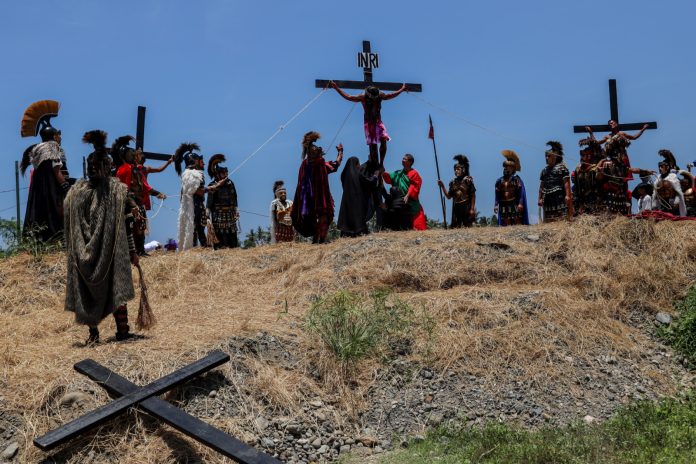My heart is filled with so much gratitude for all your greetings on my birthday today. I am sorry I could not reply yet individually. I will come back to you at a later time (after all the meetings and sessions). Today, I thank God for all his goodness as I pray for all the pains of those who suffer.
I am in the middle of a conference in Chennai, India, where our research group tries to rethink the meaning of the cross in our times – the irony of hope in the midst of pain, of resurrection at the foot of the cross.
This morning I have the privilege of an hour walk with two great theologian-friends at the lakeshore of the Bay of Bengal. The sea is familiar but more fierce, the fishing village is familiar but different, the worship places are around but looks like Hindu temples, the smiles are wonderful and welcoming but the suffering is also quite palpable and familiar. What a privileged location to think about the pains and hopes, the suffering and resurrection, in our times.
Let me share an excerpt from the paper I deliver here entitled: “Death, Horror, and Hope at the Foot of the Cross.”
“Many theologies of the cross exists in their individualist, idealist, and fatalist forms. These individualist theologies mainly take account of personal suffering (ascetic theologies) or find therapeutic meaning for our psychological “crosses” (existential theologies) which, in the end, only justifies the status quo.
“Against this direction, there is a need to assert that the cross of Jesus (and that of the crucified people) is historical. Crucifixion is a collective consequence of the world’s dominant socio-political, economic and religious structures. The life and ministry of Jesus put these structures into question, and because of which, he was killed.
The historical events that led to the crucifixion of Jesus proves to be a crucial point in Christian theology that should not be elided in favor of creation-centered and resurrection-centered emphasis. We do not just sing “alleluia” or praise “laudato si”, even as these are necessary.
“What we lack is a clear theology of the cross that point back to the glaring historical reality of the crucifixion. To closely listen to the experiences of crucified peoples and offer one’s life to transform society’s death-dealing socio-political and economic arrangements is to follow Jesus on the cross.”
To quote Jon Sobrino: “The resurrection of Jesus is a symbol of hope… I don’t see how you can show love… without being in solidarity with the victims of this world. And if you are in solidarity with the victims, I don’t see how you can avoid the cross. The theology of the cross is the theology of love in our real world.”
Father Daniel Franklin Pilario, C.M., is a theologian, professor, and pastor of an urban poor community in the outskirts of the Philippine capital. He is also Vincentian Chair for Social Justice at St. John’s University in New York. The opinions and views expressed in this article are those of the authors. They do not purport to reflect the opinions or views of LiCAS News or its publishers.









